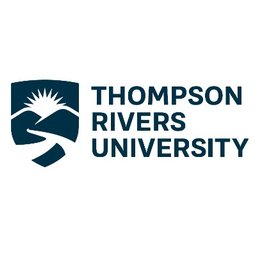Canada Excellence Research Chair (cerc) In Astrobiology Professor
Kamloops, BC, CA, Canada
Job Description
About the Opportunity
Thompson Rivers University (TRU) invites applications from globally recognized researchers to be nominated for the prestigious Canada Excellence Research Chair (CERC) in Astrobiology, centered on research related to hypersaline and phosphate-rich lakes located within Secwepemcul'ecw. One such site, Last Chance Lake (LCL), holds the highest recorded natural phosphate concentrations on Earth. This provides an unparalleled opportunity to investigate the origins of life and the environmental conditions that enable life across geological timescales. The successful nominee will be expected to lead a world-class research program that advances global understanding of astrobiology, strengthens TRU's research culture, and positions the University as an international hub for exploration of astrobiology. This work will proceed in close and respectful partnership with the Secwepemc Nation, whose permission and agreement are essential, and whose knowledge systems, stewardship, and ways of knowing are integral to shaping and guiding this research.
Launched in 2008, the CERC Program supports Canadian universities in their efforts to strengthen Canada's reputation as a global leader in research and innovation and to attract world-renowned researchers to Canada. The program is central to our national strategy to promote research excellence in Canada, enhance knowledge and quality of life, boost Canada's international competitiveness, and help train the next generation of highly skilled individuals, including members of the Secwepemc Nation. The award offers an opportunity for international researchers, including Canadian expatriates wishing to relocate to Canada, to lead a prestigious research program at TRU and contribute to Canada's excellence in research and innovation.
The CERC nomination process involves two stages, starting with applicants applying to this job posting. Those who succeed will work with our institution to submit a nomination for the 2026 CERC competition. The nomination is a two-step process: Registration (Jan 21, 2026) and Application (March 18, 2026). The university will support successful nominees throughout the application development process. The nomination will then be submitted to the Secretariat into the CERC competition. The appointment is conditional on the nomination being successfully approved by the Secretariat.
Research Focus
The successful nominee will be an expert and have a demonstrated research program within two or more of the following areas:
Emergence of complex organic molecules from simple precursors in carbonate- and phosphate-rich environments. Geochemistry and microbial ecology of hypersaline lakes as analogs for extraterrestrial environments. Interdisciplinary connections among field, laboratory, and theoretical approaches to astrobiology, geoscience, chemistry, and data science. Comparative studies linking Earth-based fieldwork with extraterrestrial samples, such as asteroid materials returned by space missions.
Key Responsibilities
The successful nominee will be expected to:
Establish and lead a cutting-edge, internationally recognized research program in astrobiology. Recruit, supervise, and mentor highly qualified personnel (HQP), including graduate students, postdoctoral fellows, undergraduate researchers, and members of the Secwepemc nation. Build strong interdisciplinary collaborations across TRU faculties and with national and international partners (e.g., Canadian Astrobiology Network, NASA Astrobiology Institute). Engage respectfully and collaboratively with Secwepemc and other Indigenous communities in accordance with the Secwepemc Nation Research Ethics Guidelines. Work collaboratively with the Secwepemc Nation, seeking guidance for respectful research on their lands. Translate knowledge through academic publications, interdisciplinary synthesis, public engagement, and contributions to scientific literacy. Secure significant external research funding and leverage opportunities for collaboration with government, industry, and international institutions.
QUALIFICATIONS
Candidate Profile
The ideal candidate will be a globally recognized researcher in astrobiology or a closely related field, with a record of excellence in:
Conducting interdisciplinary research that spans geoscience, chemistry, biology, planetary science, or related domains. Supervising and mentoring of students and trainees to achieve success in their research. Securing and managing significant research funding. Building collaborative networks across the Secwepemc Nation, academia, government, and industry. Engaging respectfully with Indigenous communities and integrating Secwepemc/Indigenous knowledges into research approaches.
Institutional Context & Resources
Location advantage:
TRU is situated in Kamloops, BC, surrounded by the unique biophysical region of the province's Interior--an ideal setting for environmental and planetary analog research.Research environment:
Strong disciplinary capacity in chemistry, geoscience, biology, ecology, data science, and engineering; access to field stations, laboratories, TRU's Wells Gray Education and Research Centre and the TRU Observatory.Support:
Competitive salary; substantially reduced teaching load (1 course annually); dedicated office and lab space; professional development support; and research facilitation from TRU's Research Office.Eligibility
In line with the CERC program, candidates should be top-tier researchers whose achievements have a significant societal impact and who are recognised internationally as leaders. Societal impact may include translating and mobilizing the candidate's research to knowledge users, publishing for non-academic audiences, community outreach, policy consultations, gaining media coverage, and forming collaborative partnerships. When the nominee is an Indigenous (First Nations, Inuit, or Metis) researcher based in Canada, the impact can be at the international level and/or within the community, regional, or national contexts.
Nominees must be a Professor or Associate Professor who is expected to be promoted to Professor within one or two years of the nomination. Alternatively, if they come from outside the academic sector, nominees must possess the qualifications necessary to be appointed at these ranks. The program imposes no restrictions on nominees regarding nationality or country of residence.
Researchers who hold a full-time academic appointment at a Canadian institution are eligible to be nominated; however, they may not be nominated by the institution at which they currently hold their appointment. If an institution nominates a researcher who is currently affiliated with a Canadian institution, the institution must demonstrate the net benefit to the country in relocating the researcher from one Canadian institution to another.
Qualifications
The successful candidate must have:
A Ph.D. in a discipline appropriate to the field of research. A proven track record in research, teaching, training, and mentoring students. Experience in developing a successful independent research program. Potential to secure significant external funding. A proven track record of working with Indigenous communities. A commitment to including and embracing Secwepemc/Indigenous knowledge. A commitment to diversity, equity, and inclusion. The requisites to qualify for the CERC program.
TRU acknowledges the potential impact that career interruptions and personal circumstances can have on an applicant's record of research achievement. We encourage applicants to explain the impact of any such interruption in their submission. Measures, including equity training on recognizing and combating unconscious, implicit, overt, prejudicial, and other kinds of bias, are in place to ensure these interruptions are considered carefully during the evaluation process.
Selection Criteria
Assessment of candidates will be based primarily on research excellence, as reflected in the quality of peer-reviewed publications, success in securing research support, and other evidence of knowledge mobilization and impact. The assessment will also include how the candidate embeds equity, diversity, and inclusion principles in their research, and the candidate's teaching and mentoring record and philosophy. TRU recognizes that its commitment to equity, diversity and inclusion is central to the university's mandate as an institution of higher learning and a community leader. Life circumstances such as illness, disability, family and community responsibilities (e.g., maternity leave, parental leave, leaves due to illness, leaves due to caring for family members, slowdowns due to chronic illness or disability, or COVID 19 impacts) are often an expected part of life and are likely to have an impact on a nominee's record of research achievement, and that these impacts will be taken into careful consideration during the assessment process.
The criterion for nomination is available on the CERC website.
The successful candidate will be appointed as a faculty member at the Faculty of Science, if the nomination is successful. Chairholders are required to take up their appointment at their host institution within 12 months of accepting the award.
Application process for the position
Application packages should include:
A cover letter with an overview of the applicant's credentials, qualifications, and research strengths, including an explanation of how they satisfy the CERC nomination criteria, and a paragraph on experience related to partnering with Indigenous communities and helping to facilitate Indigenous led research. Detailed curriculum vitae. A statement of research accomplishments and future research program (5 pages max). Highlights of the applicant's most significant contributions to their field, including how those have led to societal benefits, and how they connect with the research plan (2 pages max). A one-page statement identifying strengths and experiences in promoting equity, diversity, and inclusion. Names and contact information for three referees.
Please submit your application through TRU's careers portal, www.tru.ca/careers. The search and hiring of this position are governed by LOU#3 in the TRU-TRUFA Collective Agreement.
Review of applications will begin immediately and continue until the nomination is filled.
For inquiries, please contact: Office of the Vice-President Research, Thompson Rivers University (vpr@tru.ca), alternatively Dr. Greg Anderson, Dean of Science, Thompson Rivers University (ganderson@tru.ca)
About Thompson Rivers University
TRU offers numerous pathways for learning to regional, national, and international students. Research, creation, and innovation are integrated into teaching and learning across more than 140 on-campus programs and 60 programs in our Open Learning Division. TRU is one of six research universities in British Columbia (Research Universities Council of BC). Over the past decade, TRU has experienced significant growth in research capacity, funding, and graduate programs, earning a spot among Canada's top 50 research universities in 2023. TRU's strategic focus is on developing world-class research teams and supporting them with cutting-edge research equipment, including federally funded labs such as TRU-Gen: Applied Genomics Lab, Wildlab: Wildfire and Landscape Dynamics Lab, Brain and Behaviour Lab, the Precision Management of Rangeland Systems for a Sustainable Future (Geox Lab), the Multidisciplinary Microanalysis and Micro-imaging Lab, the Children and the Law Lab, and the Rural Livelihood and Sustainable Communities Lab. Supported by the Province of BC, TRU's Institute for Wildfire Science, Adaptation and Resiliency and TRU Wildfire provide a solutions-oriented and comprehensive approach to current and future wildfire challenges, bringing together research, education, training, and innovation under one umbrella.
TRU is also a member of the Interior Universities Research Coalition (IURC), which was established with two regional universities (the University of Northern British Columbia and the University of BC, Okanagan). The coalition aims to strengthen research environments across the Interior through shared resources, faculty and student exchanges, and community partnerships. As supported by BC's Ministry of Health, the IURC continues to promote regional collaboration and innovation.
TRU is dedicated to ensuring student access to a research-informed university education that offers a variety of opportunities for both students and faculty to achieve and surpass their potential.
Thompson Rivers University's spectacular main campus is at the heart of Kamloops, British Columbia, a small city of over 100,000 in BC's sunny interior, where we enjoy four seasons of outdoor adventures, a rich cultural scene and a vibrant, diverse campus community. We recognize that our Kamloops campus is situated on the traditional and unceded territory of Tk'emlups te Secwepemc.
We are committed to respecting these lands and the ongoing relationships with Secwepemc /Indigenous peoples in our academic and community endeavors. TRU supports the Truth and Reconciliation Commission (TRC) and United Nations Declaration on the Rights of Indigenous Peoples (UNDRIP) through the Coyote Project, a roadmap to achieving the TRC's Calls to Action.
Equity Statement
The CERC program is consistent with the CRC Program's equity, diversity and inclusion requirements and is aligned with TRU's official policy and plans. Through TRU Policy ADM 04-1 and TRU's CRC Equity Diversity and Inclusion Action Plan, TRU is firmly committed to the principles of employment equity, employing people without regard to ancestry, including colour and perceived race; nationality or national origin, religion or creed or religious belief, religious association or activity; age; sex, including pregnancy; gender identity, sexual orientation, political belief, physical or mental disability, or social disadvantage. While remaining alert and sensitive to the issue of fair and equitable treatment for all, TRU has a special concern with the participation and advancement of members from designated groups identified by the CRC program as having been previously disadvantaged in employment: women, racialized communities, Indigenous/Aboriginal peoples, LGBTQ2S and persons with disabilities. We believe that ensuring equity, diversity, and inclusion in the CRC, the Canada Excellence Research Chairs Program, and the broader research enterprise will lead to the creation of an innovative and impactful research environment that will seize opportunities and respond to global challenges.
TRU encourages applications from those who would contribute to the further diversification of our faculty and its scholarship including but not limited to women, visible minorities, Indigenous persons and persons with disabilities. All qualified candidates are encouraged to apply.
The search, interview, and selection process will be informed by the CRC program's Equity, Diversity and Inclusion Action Plan and Creating an Equitable, Diverse and Inclusive Research Environment: A Best Practices Guide for Recruitment, Hiring and Retention
If candidates require accommodation supports during the search process, please contact TRU People and Culture: TotalRewards@tru.ca
The Canada Excellence Research Chairs Program requires institutions to collect self-identification data from all applicants, following the program's best practices. This data is important to the University's ability to ensure that researchers from diverse groups are able to benefit from participation in the program. All applicants to this CERC opportunity are required to complete TRU's Diversity and Inclusion survey.
Beware of fraud agents! do not pay money to get a job
MNCJobz.com will not be responsible for any payment made to a third-party. All Terms of Use are applicable.
Job Detail
-
Job IdJD2890850
-
IndustryNot mentioned
-
Total Positions1
-
Job Type:Full Time
-
Salary:Not mentioned
-
Employment StatusPermanent
-
Job LocationKamloops, BC, CA, Canada
-
EducationNot mentioned



